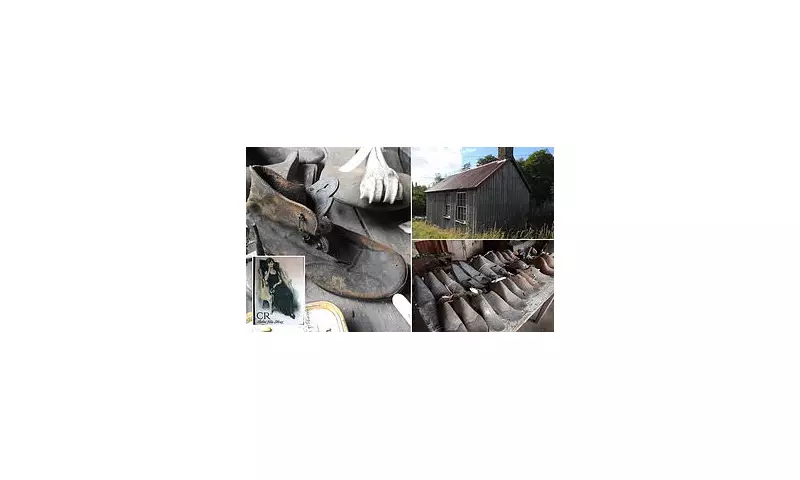
In an extraordinary discovery that seems to defy the passage of time, a historic shoemaker's workshop has been found preserved exactly as it was left decades ago, offering a remarkable window into a bygone age of British craftsmanship.
A Snapshot of Post-War Britain
The shop, located in Northamptonshire - once the heart of England's shoe manufacturing industry - appears frozen in the 1950s. Dusty jars of polish, weathered leather hides, and traditional tools remain exactly where the last cobbler left them, creating an atmospheric time capsule of mid-20th century life.
The Tools of a Dying Trade
Walking into the premises feels like stepping through a portal to another era. Traditional shoemaking equipment covers every surface, from heavy-duty sewing machines to rows of wooden lasts that would have shaped countless pairs of shoes for local customers.
'It's as if the craftsman just stepped out for lunch and never returned,' remarked one of the first people to document this remarkable find.
Unfinished Business
Perhaps most poignant are the unfinished repairs and customer orders still waiting to be collected. Leather soles sit half-stitched to uppers, while handwritten notes detail work that would never be completed, telling silent stories of the community that once relied on this small business.
Northamptonshire's Shoemaking Heritage
The discovery holds particular significance given Northamptonshire's historic role in British shoemaking. At its peak, the county produced more shoes than anywhere else in the country, with hundreds of workshops serving both local needs and international markets.
This perfectly preserved establishment serves as a poignant memorial to the skilled artisans who once formed the backbone of Britain's manufacturing industry, before cheaper overseas production changed the landscape forever.
A Race Against Time
Conservationists now face the challenge of preserving this unique snapshot of social history. The building and its contents have survived remarkably well, but require careful protection to ensure future generations can appreciate this rare insight into Britain's industrial past.
For historians and visitors alike, this frozen moment in time offers a powerful connection to the craftsmen whose skills shod the nation, preserving their legacy in the most unexpected way.





